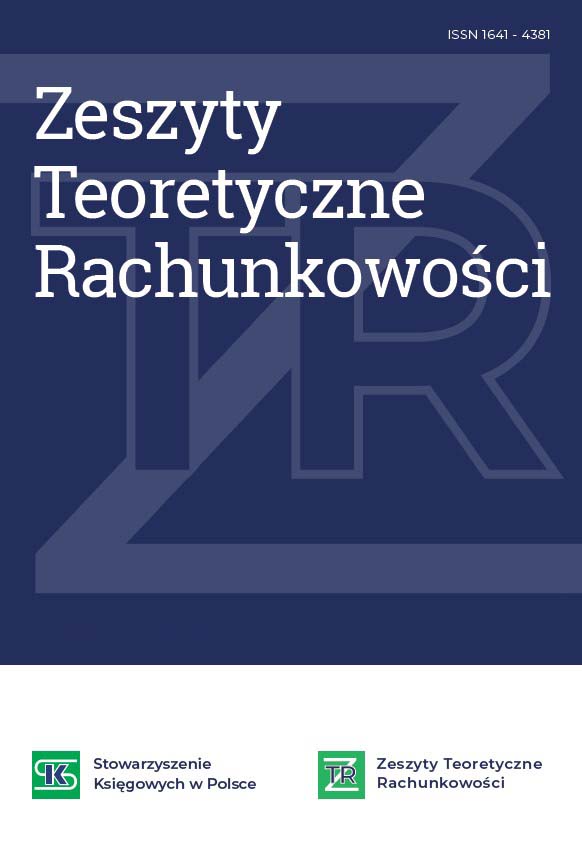Electronic Document Management Systems
as an IT tool for processing accounting
e-documents in Polish local government
Electronic Document Management Systems
as an IT tool for processing accounting
e-documents in Polish local government
Author(s): Cyryl KotylaSubject(s): Economy, National Economy, Business Economy / Management, Micro-Economics, ICT Information and Communications Technologies
Published by: Stowarzyszenie Księgowych w Polsce
Keywords: e-accounting; e-invoice; e-signature; e-document; eIDAS; Electronic Document Management System (EDMS)
Summary/Abstract: Purpose: This paper explores the level of use of Electronic Document Management Systems (EDMSs) to process electronic accounting documents in local government in Poland, as well as the kind of basic activities related to electronic accounting documents that are supported in EDMSs. Registering electronic accounting documents in an EDMS is a vital step towards e-accounting because the automation of the processes related to registering accounting documents in accounting software is possible only when the accounting documents are electronic, i.e. in the form of a structured XML file.Methodology/approach: Survey research was conducted among local government units (LGUs) in Poland to examine whether they use EDMSs to support accounting work related to the handling of electronic accounting documents. One thousand, five hundred and forty-nine units were examined, which is approx. 57% of the total population. The study is qualitative in nature.Findings: The results showed that the Polish local government is poorly prepared to register electronic accounting documents in EDMSs. Of the 1,594 units examined, 1,058 use an EDMS and 536 have not yet implemented one, which means that these LGUs are not at all prepared for electronic communication, including registration of electronic accounting documents. Of those units already using an EDMS (1058), 685 use it to register electronic accounting documents, while 373 do not use it for this purpose.Research limitations/implications: The limitation of the study is that despite the relatively large number of LGUs surveyed, the qualitative study does not allow for the generalisation of the results for the entire population.Practical implications: The study will be of interest to all those who plan to automate accounting processes based on loading metadata to the accounting software directly from electronic accounting documents in the form of XML files. Even though the empirical study covered only Polish LGUs, the issues related to IT applications used to develop e-accounting documents will also be of interest to local governments of other EU Member States, as the regulations and principles mentioned in the study have entered into force in all Member States. Originality/value: The originality of the study lies in the fact that e-accounting, e-documents, and e-signature are relatively young phenomena, so this study may be one of the voices in the future discussion on this topic. The originality and value of the study lie in the attempt to approximate the degree of current EDMS use to process electronic accounting documents in local governments and the plans for implementing an EDMS in those local governments that do not yet use one in their activities. This will allow us to predict and assess the state of development of Accounting Information Systems (AIS).
Journal: Zeszyty Teoretyczne Rachunkowości
- Issue Year: 2021
- Issue No: 111
- Page Range: 112-134
- Page Count: 23
- Language: English, Polish

